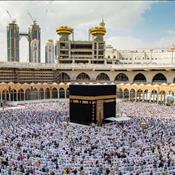.webp)
The Hajj pilgrimage is one of the most significant religious obligations for Muslims worldwide. Every year, millions of pilgrims travel to Saudi Arabia to perform Hajj, and Pakistan is among the top countries sending the highest number of pilgrims. However, this year, thousands of Pakistani applicants were left disappointed due to a significant reduction in the private Hajj quota.
Prime Minister Shehbaz Sharif has taken strict notice of this issue and ordered an immediate inquiry. A high-level three-member committee has been formed to investigate why the private Hajj quota was not secured on time and who is responsible for this administrative failure.
Background: Pakistan’s Hajj Quota System
Pakistan receives a fixed Hajj quota from Saudi Arabia each year, divided into two schemes:
Government Hajj Scheme—Managed by the Ministry of Religious Affairs, offering subsidized packages.
Private Hajj Scheme—Operated by private tour operators, providing more flexibility and additional services.
This year, Saudi Arabia introduced new Hajj policies, including digital registrations and stricter regulations for private operators. Unfortunately, due to delays in coordination between Pakistan’s Ministry of Religious Affairs and Saudi authorities, the private Hajj quota was significantly reduced, leaving many Pakistanis unable to perform Hajj.
Prime Minister’s Swift Response
Upon receiving complaints from affected pilgrims, Prime Minister Shehbaz Sharif took immediate action. He expressed serious concerns over the mismanagement and ordered
A high-level inquiry into why the private Hajj quota was not secured on time.
Formation of a three-member committee to investigate the issue.
Submission of a detailed report within three days identifying the responsible officials.
Composition of the Inquiry Committee
The committee includes:
Chairman: Secretary of the Cabinet Division
Member: Chairman of the Federal Board of Revenue (FBR)
Member: Federal Secretary for Gilgit-Baltistan
The committee has been directed to:
Investigate why the Ministry of Religious Affairs failed to coordinate with Saudi authorities.
Determine why private operators were not allocated sufficient quotas.
Recommend measures to prevent such issues in the future.
Why Did This Happen? Key Reasons
Several factors contributed to this year’s Hajj quota crisis:
1. Delayed Communication with Saudi Authorities
Saudi Arabia introduced new Hajj regulations for 2025, including:
Mandatory digital registration for all pilgrims.
Stricter eligibility criteria for private tour operators.
Pakistan’s Ministry of Religious Affairs allegedly failed to adapt to these changes promptly, leading to delays in quota allocation.
2. Lack of Coordination Between Government and Private Operators
Private Hajj operators complained that they were not given sufficient time to complete registrations. Many applicants who had paid in advance were left stranded when the quota was suddenly reduced.
3. Administrative Lapses in the Ministry of Religious Affairs
Sources suggest that bureaucratic delays and inefficiencies within the ministry contributed to the crisis. Some officials allegedly did not prioritize the matter, leading to last-minute complications.
Impact on Pakistani Pilgrims
The reduction in the private Hajj quota has caused:
Financial Losses: Many applicants had already paid deposits to private operators.
Emotional Distress: Pilgrims who had been preparing for years were left heartbroken.
Last-Minute Scrambles: Some had to switch to the government scheme, which has limited slots and stricter conditions.
Public Reaction
Social media has been flooded with complaints from affected pilgrims. Many blame the government for poor planning, while others accuse private operators of mismanagement.
Government’s Next Steps
The Prime Minister’s intervention shows the seriousness of the issue. The inquiry committee is expected to:
Identify Responsible Officials—Those found negligent may face disciplinary action.
Recommend Policy Changes—To prevent such issues in future Hajj operations.
Compensate Affected Pilgrims— Some may be accommodated in next year’s quota.
Lessons for Future Hajj Operations
To avoid such crises in the future, the government should:
✔ Improve Coordination with Saudi Authorities—Early communication on Hajj policies is crucial.
✔ Streamline Private Operator Regulations—Clearer guidelines for private Hajj operators.
✔ Digitize the Application Process—Reduce delays with automated systems.
✔ Increase Transparency—Regular updates for applicants to avoid confusion.
Conclusion
The Hajj quota crisis has highlighted administrative weaknesses in Pakistan’s pilgrimage management system. Prime Minister Shehbaz Sharif’s swift action demonstrates his commitment to resolving the issue and ensuring better planning for future Hajj operations.
The inquiry committee’s findings will be crucial in holding responsible parties accountable and implementing reforms to prevent such problems in the coming years.
For updates on this issue, stay tuned to Trips.pk.
FAQs
Q1: Why was the private Hajj quota reduced this year?
A: Due to delays in coordination between Pakistan’s Ministry of Religious Affairs and Saudi authorities, the private quota was not secured on time.
Q2: What will happen to applicants who couldn’t get the private Hajj quota?
A: The government may accommodate some in next year’s quota or refund their payments.
Q3: How can such issues be prevented in the future?
A: Better coordination, early planning, and digital reforms can help avoid such crises.
More Travel News
-
 25-Mar-2020VR Travel: A Novel way to Travel amid Coronavirus Consequences
25-Mar-2020VR Travel: A Novel way to Travel amid Coronavirus Consequences -
 26-Mar-2021The New Hajj Policy For 2021
26-Mar-2021The New Hajj Policy For 2021 -
 10-Sep-2022A Memorable Visit to Kashmir: My Travelog
10-Sep-2022A Memorable Visit to Kashmir: My Travelog -
 17-Jan-2025Hajj 2025 Training Schedule Has Been Announced by the Ministry of Religious Affairs
17-Jan-2025Hajj 2025 Training Schedule Has Been Announced by the Ministry of Religious Affairs -
 03-Mar-2025Policy on Interfaith Harmony
03-Mar-2025Policy on Interfaith Harmony -
 20-Aug-2020Pakistan Government Decides To Develop Tourist Places Across The Country
20-Aug-2020Pakistan Government Decides To Develop Tourist Places Across The Country -
 23-Sep-2020Umrah Pilgrimage To Be Resumed By Saudi Government From Oct 4, 2020
23-Sep-2020Umrah Pilgrimage To Be Resumed By Saudi Government From Oct 4, 2020 -
 25-Sep-2024Iran has Resumed Traveling to Saudi Arabia for the Umrah Pilgrims
25-Sep-2024Iran has Resumed Traveling to Saudi Arabia for the Umrah Pilgrims
